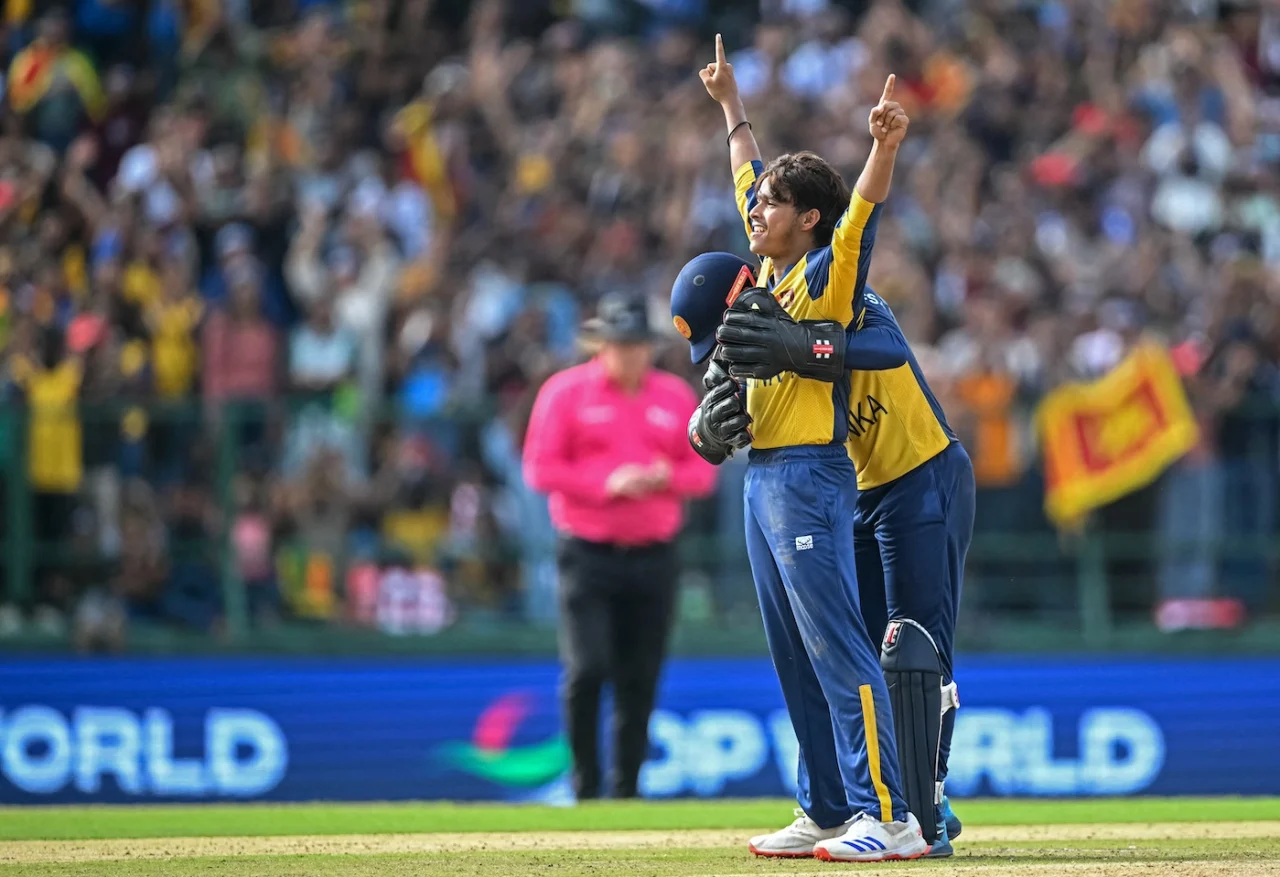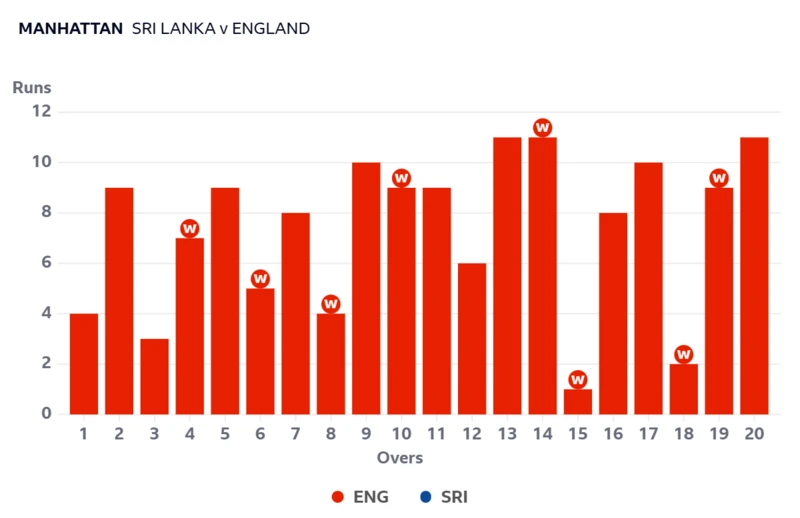Sports
Why everyone fears India like the plague

by Rex Clementine
Boxing Day Tests are the crown jewels of the cricketing calendar, and where better to soak it all in than Melbourne—the undisputed sporting capital of the world. The Melbourne Cricket Ground (MCG) has a magnetic charm that few venues can rival. It’s a coliseum of dreams, and this year, it delivered drama that had fans on the edge of their seats.
Enter Jasprit Bumrah, a bowler with pace as awkward as a drunk uncle on the dance floor, who tormented the Aussies with his unplayable bounce. The scene grew even more intriguing when Australia threw a curveball by debuting a 19-year-old rookie.
‘If seasoned campaigners can’t handle Bumrah, what chance does a teenager have?’ many wondered aloud. But this kid, Konstas, wasn’t one to tiptoe into the limelight. Instead, he swaggered his way in, flicking the world’s top-ranked bowler for his maiden runs, scooping his first boundary with cheeky audacity, and topping it off with a reverse scoop for six. Bumrah had rattled the top order, but Konstas wrestled the momentum back Australia’s way with a performance as bold as it was brilliant.
We should have been celebrating this young dynamo, but cricket, being cricket, had other plans. Instead, the spotlight shifted to a petty spat – Virat Kohli’s shoulder barge on the young debutant. It was as unsightly as a poorly brewed cup of tea. If cricket had a version of a red card, Kohli would’ve deserved it, along with a hefty fine and a one-match suspension. Yet, Match Referee Andy Pycroft, wielding authority like a soft schoolteacher, let him off with a mere slap on the wrist.
This sets a dangerous precedent. If shoulder barging now only costs you a 20% match fee, what’s stopping others from following suit? The guardians of the game had a golden opportunity to make an example of Kohli – perhaps even bench him for the Sydney Test – and draw a hard line: aggression is fine, but cricket isn’t a contact sport. Instead, they let this moment slip through their fingers like a poorly caught edge.
Fans have long whispered about the double standards in cricket’s disciplinary corridors: one rule for India, another for the rest. And who can blame them? In today’s cricketing landscape, no one wants to poke the bear that is the BCCI. The Aussies themselves, usually happy to fan the flames of controversy, seemed content to sweep this under the rug.
Pycroft, a veteran Match Referee with over 100 Tests to his name, might have been trying to tread carefully. After all, the BCCI has a history of flexing its muscles to get its way. Remember Mike Denness. The former England captain had the audacity to sanction six Indian players in 2001 for excessive appealing, ball tampering, and bringing the game into disrepute. The result? The players walked free, but Denness was unceremoniously shown the door. When India threatened to abandon the tour, South Africa, the hosts, bent over backwards to accommodate them. The ICC stood by Denness in principle, but in practice, India called the shots.
History repeated itself in 2008 during the infamous Monkeygate saga in Perth. Match Referee Mike Procter handed Harbhajan Singh a three-match ban for allegedly making a racial slur. India, as predictable as ever, threatened to pull out of the tour. The ban was overturned on appeal, leaving Procter looking like a deer in headlights. Not only did he lose face, but he was also quietly blacklisted from officiating in the IPL.
India’s rise as a cricketing superpower is something to marvel at. Their talent pipeline runs deeper than an oil well, and their financial clout is unmatched. But it’s stunts like Kohli’s that make even moderate fans grit their teeth in frustration. Kohli may have escaped a suspension, but his antics have left a sour taste. While his loyal fanbase cheers on his firebrand behaviour, others are quietly hoping for his swan song in Indian colours.
Off the field, the Kohli debate has drawn a motley crew of former cricketers who are now preaching the gospel of playing in the “right spirit.” Michael Vaughan, Justin Langer, and Ricky Ponting are leading the charge. But before we crown them as saints, let’s not forget the skeletons rattling in their cupboards. Each of these gentlemen has, at one point or another, dragged the game’s reputation through the mud. Their sudden transformation into moral guardians reeks of the classic “poacher turned gamekeeper” scenario.
Latest News
England limp to 146-9 against Sri Lanka

England stagger to 146‑9 at the end of their 20 overs as they failed to build any sustained partnerships.
This might just be well short of a truly competitive total but they will hope the pitch does them some favours when they come out to bowl.
Brief score:
England 146/9 in 2o overs [Phil Salt 62, Harry Brook 14, Sam Curran 11,Will Jacks 21, Jamie Overton 10*; Dilshan Madushanka 2-25, Dunith Wellalage 3-26, Maheesh Theekshana 2-21, Dushmantha Chameera 1-34] vs England

Latest News
Sri Lanka opt to chase against England in Pallekele

Sri Lanka have opted to chase against England at Pallekele, hoping to replicate their dominance victory over Australia here to kickstart their Super Eight campaign.
It was six days ago that Pathum Nissanka’s unbeaten 100 saw the hosts chase down Australia’s total of 181 with eight wickets and two overs to spare. And with home skipper Dasun Shanaka is looking to utilise that confidence in this Group 2 encounter.
“We’ve been chasing well in the past few occasions and happy to chase again,” said Shanaka at the toss. “The boys are very confident playing here.”
England skipper Harry Brook – on his 27th birthday – again called for bravery after his side stumbled into the second stage of this tournament. The two-time champions have gone in with an unchanged team for the fourth match in a row, with Jamie Overton retaining his place as the allrounder. Brook’s only slight worry is a cut to Jacob Bethell’s bowling hand (sustained during the match against West Indies), which is likely to prevent him from bowling due to the strapping on his finger.
Sri Lanka meanwhile make two changes to their XI, with Dushmantha Chameera returning in place of Pramod Madushan, having been rested for the defeat to Zimbabwe. Kamil Mishra comes back in for the man who replaced him, Kusal Perrera, as the hosts shuffle once more in an attempt to find a functional opening partnership.
These two squads know each other very well, having only concluded a three-match T20I series against one another at the start of the month, which took place entirely in Pallekele. England secured a 3-0 scoreline, capping things off with a professional 12run win in a low scoring encounter.
As for the outfield, both sides are primed for a different evening of ground-fielding on patchy grass. Heavy rains have punctuated the five das leading into this clash. Overnight precipitation has sodden the edges of the field, though the middle parts of the ground had been well-covered.
Sri Lanka: Pathum Nissanka, Kamil Mishara, Kusal Mendis (wk), Pavan Rathnayake, Kamindu Mendis, Dasun Shanaka (capt), Dunith Wellelage, Dushan Hemantha, Maheesh Theekshana, Dilshan Madushanka, Dushmantha Chameera
England: Phil Salt, Jos Buttler (wk), Jacob Bethell, Tom Banton, Harry Brook (capt), Sam Curran, Will Jacks, Liam Dawson, Jamie Overton, Jofra Archer, Adil Rashid
[Cricinfo]
Sports
Six races, six golds – Klaebo’s historic Olympics

Johannes Hoesflot Klaebo, Norway’s king of cross-country skiing, broke the record for the most gold medals won at a single Winter Olympics with his sixth of the Games.
Klaebo led a Norwegian sweep of the podium in the 50km mass start classic, with team-mates Martin Loewstroem Nyenget and Emil Iversen taking silver and bronze respectively.
The 29-year-old finished the brutal distance in two hours six minutes 44.8 seconds, 8.9secs ahead of Nyenget who takes his third medal of the Games.
“It’s been crazy, it’s a dream come true,” Klaebo told BBC Sport.
“I really think this Olympics has been perfect. Being able to crown the Olympics with the 50km was unbelievable.”
Klaebo breaks the previous record of five golds from a single Games, held by American speed skater Eric Heiden since the Lake Placid Olympics of 1980.
It also extends his own record for most Winter Olympic golds to 11, while he becomes the first athlete to win all six cross-country events at one Games.
Only US swimming great Michael Phelps, who won 23 gold medals, has more Olympic titles to his name.
Born in Oslo, Klaebo moved to Trondheim – a haven of cross-country skiing trails – as a young child, a move that has seen him become the greatest to ever do the sport.
No other man, active or retired, comes close to his record of 116 World Cup wins, while he is also a 15-time world champion, winning all six titles at last year’s edition on home snow in Trondheim.
“After the world championships last year, we knew that it was possible, but to be able to do it, it’s hard to find the right words,” he told reporters.
“[There were] so many emotions when I’m crossing the finish line.”
His sixth Olympic gold at Milan-Cortina adds to the titles he had won earlier in the Games in the skiathlon, sprint classic, 10km interval start free, 4×7.5km relay and the team sprint.
[BBC]
-

 Features19 hours ago
Features19 hours agoWhy does the state threaten Its people with yet another anti-terror law?
-

 Business7 days ago
Business7 days agoMinistry of Brands to launch Sri Lanka’s first off-price retail destination
-

 Features19 hours ago
Features19 hours agoVictor Melder turns 90: Railwayman and bibliophile extraordinary
-

 Features19 hours ago
Features19 hours agoReconciliation, Mood of the Nation and the NPP Government
-

 Latest News2 days ago
Latest News2 days agoNew Zealand meet familiar opponents Pakistan at spin-friendly Premadasa
-

 Features19 hours ago
Features19 hours agoVictor, the Friend of the Foreign Press
-

 Latest News2 days ago
Latest News2 days agoTariffs ruling is major blow to Trump’s second-term agenda
-

 Latest News2 days ago
Latest News2 days agoECB push back at Pakistan ‘shadow-ban’ reports ahead of Hundred auction













